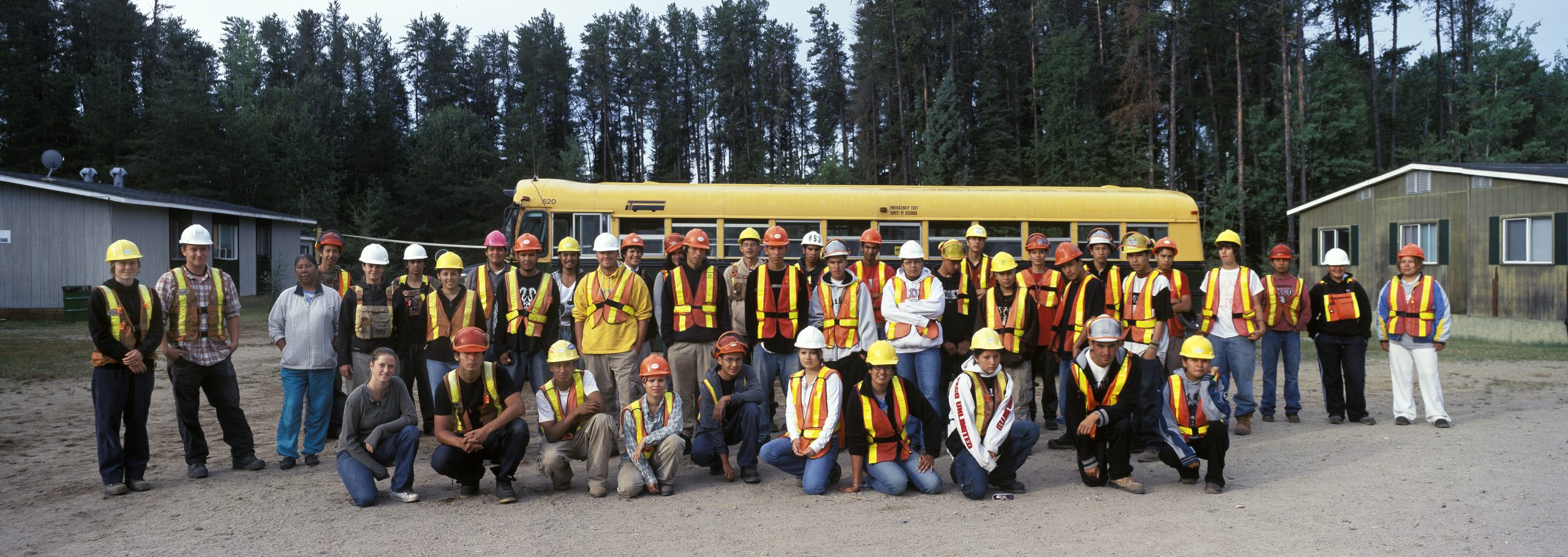Indigenous engagement
 As the First Peoples living in and managing our vast and abundant land for millennia, forests are fundamental to the livelihood of Indigenous Peoples. The sustainable use of forests within their traditional territories is critically important for subsistence, economic, and ceremonial practices. Given that most Indigenous communities are located in or near forested lands (over 70 per cent of First Nations) and have a long history of forest management, encouraging increased Indigenous involvement in decision-making and in the forest sector will strengthen Indigenous communities and provide significant contributions to Canada’s forest-based economy and sustainable forest management objectives.
As the First Peoples living in and managing our vast and abundant land for millennia, forests are fundamental to the livelihood of Indigenous Peoples. The sustainable use of forests within their traditional territories is critically important for subsistence, economic, and ceremonial practices. Given that most Indigenous communities are located in or near forested lands (over 70 per cent of First Nations) and have a long history of forest management, encouraging increased Indigenous involvement in decision-making and in the forest sector will strengthen Indigenous communities and provide significant contributions to Canada’s forest-based economy and sustainable forest management objectives.
Indigenous and treaty rights are protected by Canada’s constitution, and this is increasingly reflected in forest policy and forest management practices. Indigenous involvement in the land is being formally acknowledged through processes that include land tenure, land claims, treaty making and treaty land entitlement.
Including Indigenous perspectives on forest related issues will strengthen CCFM outcomes and products, as well as support Indigenous participation in the forest sector.
CCFM Indigenous Engagement Committee
The CCFM Indigenous Engagement Committee focuses on knowledge sharing, allowing members to learn from each other and improve the understanding of relationships between jurisdictions and local Indigenous communities, creating opportunities to engage national and local Indigenous partners.
This Committee’s efforts seek to establish an effective method of sharing stories and Indigenous programming in various jurisdictions, as well as identify opportunities to build bridges between Indigenous Knowledge and Western science systems in the context of CCFM-related or -led research and partnerships.
Indigenous engagement is a cross-cutting issue within CCFM’s Strategic Framework. The information gathered through knowledge sharing within the committee and engagement with Indigenous partners will improve relationships and, subsequently, provide critical input for decision making and planning.
